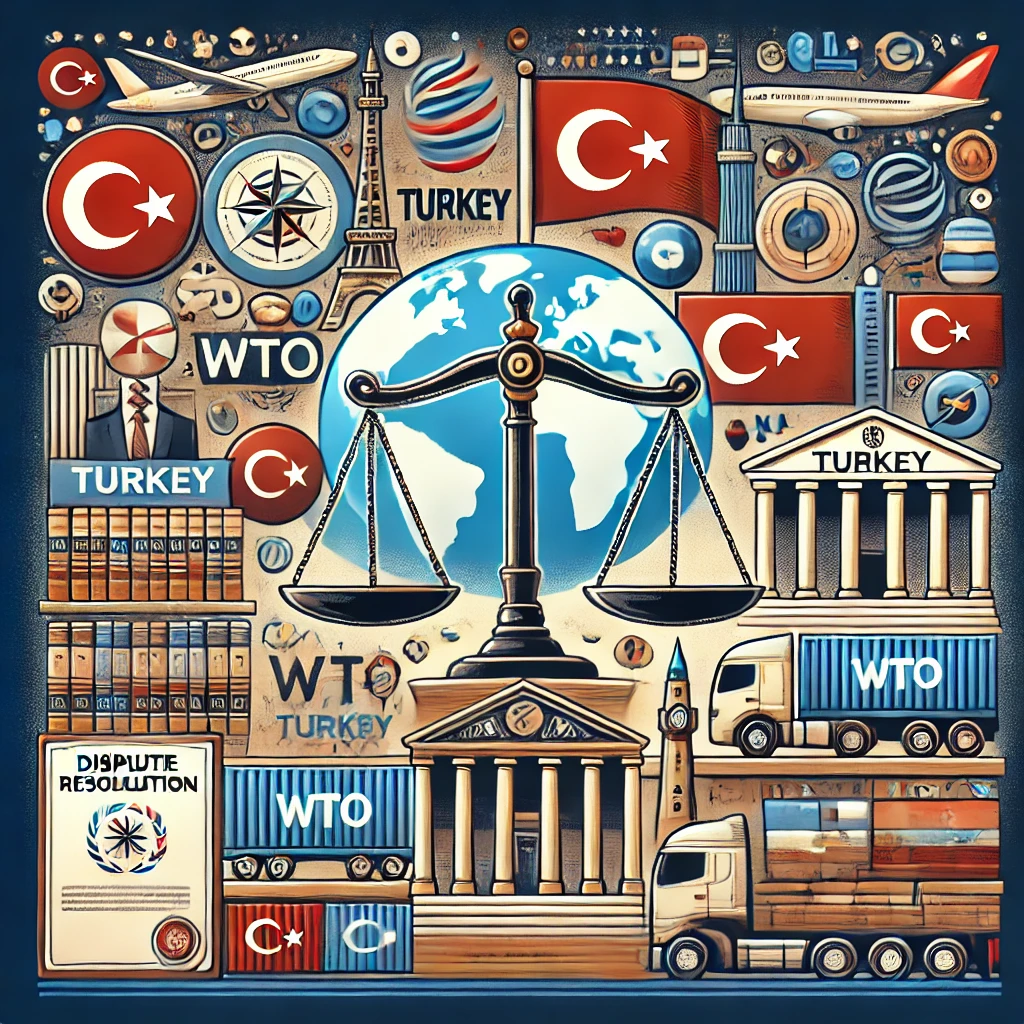Introduction
Turkey is deeply integrated into the global trading system, participating in both multilateral trade agreements and various free trade agreements (FTAs). When disputes arise under these frameworks, effective resolution mechanisms are essential to maintain smooth commercial relations. The World Trade Organization (WTO) and international arbitration provide key pathways for resolving these disputes. This article explores the legal framework in Turkey for resolving multilateral trade disputes, focusing on the WTO dispute settlement system and the role of arbitration in international trade.
1. WTO Dispute Settlement System and Turkey’s Participation
- Legal Framework and Procedures
- The WTO dispute settlement system is governed by the Dispute Settlement Understanding (DSU), which establishes rules for resolving trade disputes between member states.
- Turkey, as a founding member of the WTO, uses this system to address disputes involving tariffs, subsidies, and trade barriers. The WTO system emphasizes diplomatic consultation, followed by panel reviews and Appellate Body decisions if consultations fail.
- Turkey’s Role in WTO Disputes
- Turkey has both initiated and responded to disputes under the WTO framework. Examples include disputes related to safeguard measures on imports and anti-dumping practices.
- If a WTO panel finds a violation of WTO rules, Turkey must either bring its trade measures into compliance or negotiate compensation with the complaining country.
- Challenges with WTO Mechanisms
- Enforcement of WTO rulings can be challenging, as the system relies on compliance and diplomatic pressure.
- Recent stagnation of the WTO Appellate Body has weakened the effectiveness of the dispute resolution process, leading some countries to seek alternative solutions like bilateral arbitration.
2. International Arbitration in Multilateral Trade Disputes
- The Role of Arbitration in Trade Disputes
- Arbitration offers a neutral, private mechanism for resolving trade-related disputes, especially between private parties or between states and investors under bilateral investment treaties (BITs).
- Arbitration clauses are often included in trade agreements or contracts between multinational companies and state entities, providing an alternative to litigation.
- Arbitration Framework under Turkish Law
- Turkey is a party to the New York Convention on the Recognition and Enforcement of Foreign Arbitral Awards, ensuring that arbitration awards are enforceable in Turkey.
- The Istanbul Arbitration Center (ISTAC) provides a local venue for resolving international trade disputes. ISTAC operates under rules compatible with the UNCITRAL Arbitration Rules, ensuring consistency with global standards.
- Challenges of Arbitration in Trade Disputes
- While arbitration offers speed and flexibility, the high costs and limited appeal options can pose challenges. Additionally, public policy exceptions may restrict the enforceability of some awards under Turkish law.
3. Interaction between WTO Disputes and Arbitration
- Complementary Roles
- While the WTO dispute settlement mechanism addresses state-to-state disputes, arbitration provides a pathway for disputes involving private entities or specific contractual issues within trade relationships.
- Some free trade agreements allow for arbitration as an alternative to WTO mechanisms, particularly for investment-related disputes.
- Hybrid Approaches in Modern Trade Agreements
- Recent trade agreements, such as the Comprehensive Economic and Trade Agreement (CETA) between the EU and Canada, incorporate both arbitration and state-to-state dispute mechanisms, providing multiple avenues for resolving disputes.
4. Enforcement of Trade Dispute Decisions under Turkish Law
- Compliance with WTO Rulings
- Turkey ensures compliance with WTO rulings through amendments to domestic trade measures. However, challenges may arise when compliance conflicts with domestic policy goals.
- Enforcement of Arbitral Awards
- Turkish courts enforce foreign arbitration awards under the New York Convention, provided the awards do not conflict with Turkish public policy or involve matters within exclusive Turkish jurisdiction (e.g., real estate disputes).
Conclusion
Turkey actively participates in the WTO dispute settlement system and promotes arbitration as an effective mechanism for resolving multilateral trade disputes. The combination of diplomatic dispute resolution through the WTO and private arbitration for investment-related disputes provides flexibility and ensures efficient conflict management. As global trade evolves, Turkey’s legal framework must remain adaptive, balancing compliance with international rules and domestic policy considerations.

Yanıt yok